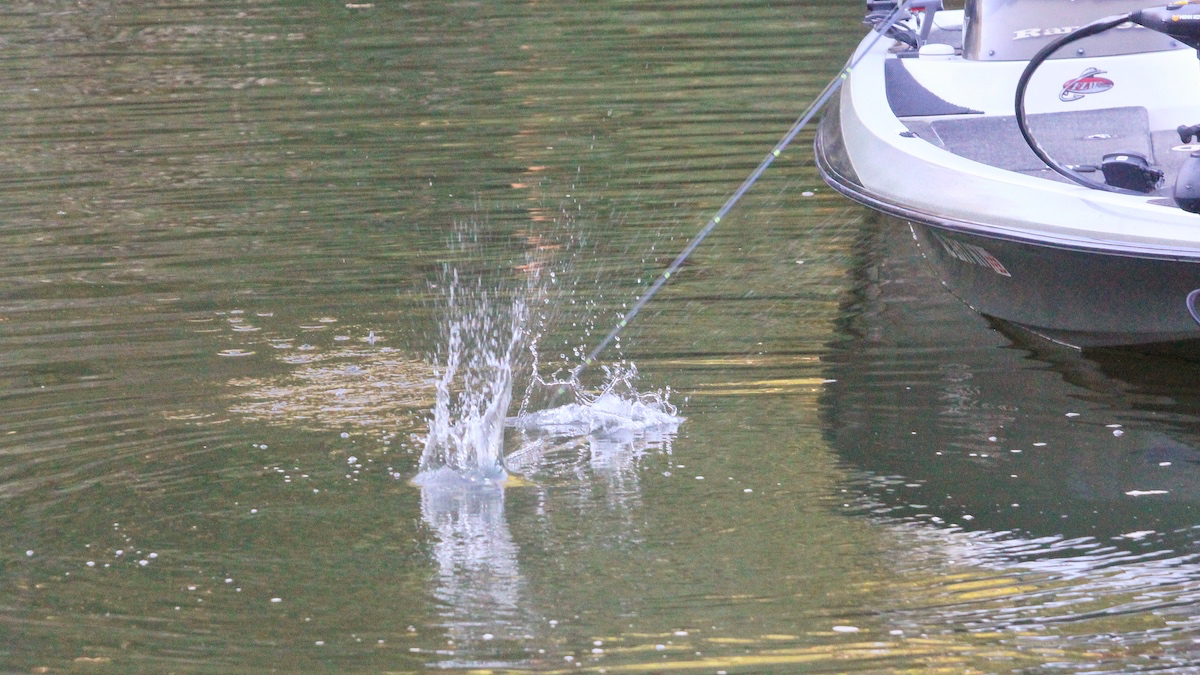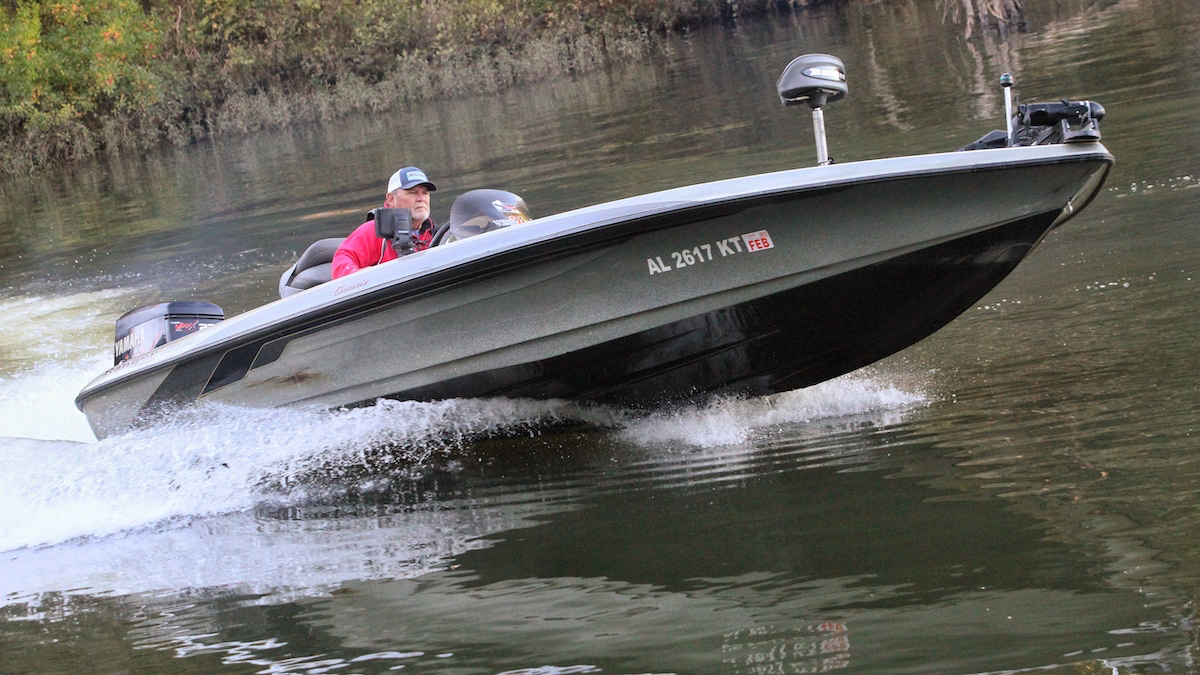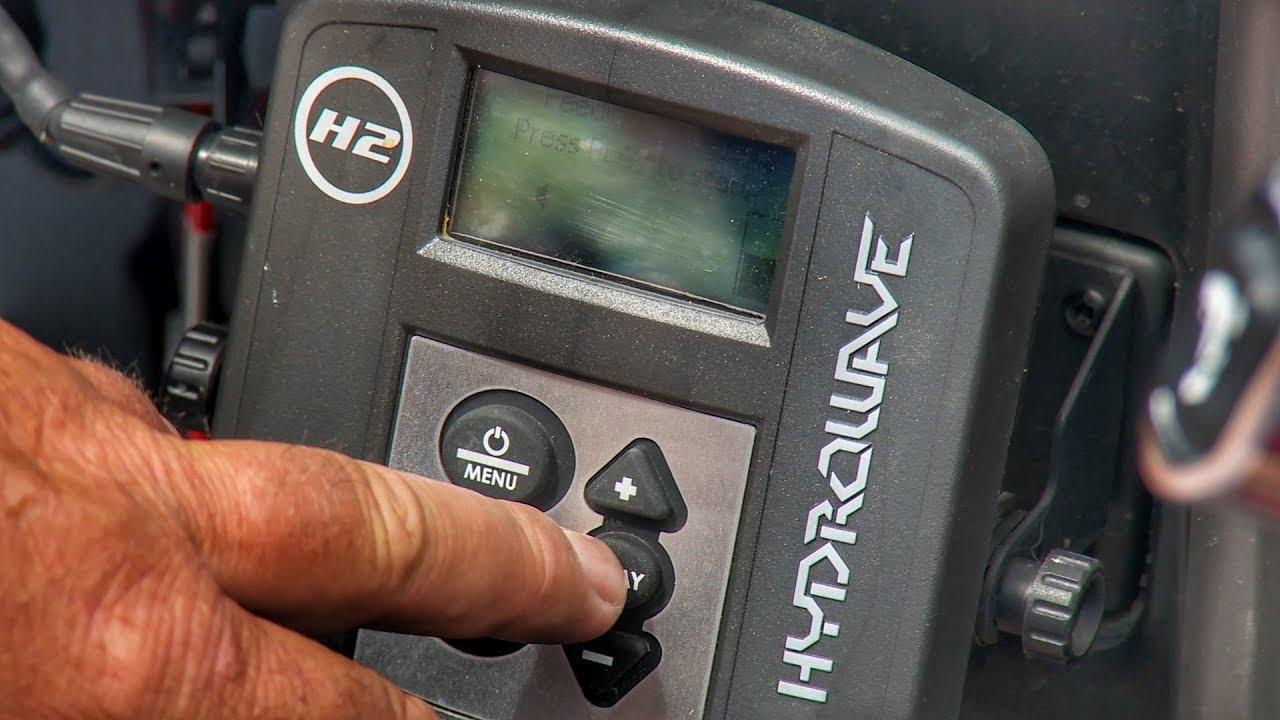Warning: Undefined variable $k in /home/nginx/domains/wired2fishcom.bigscoots-staging.com/public/wp-content/themes/understrap-child-0.6.0/functions.php on line 984
Warning: Undefined variable $k in /home/nginx/domains/wired2fishcom.bigscoots-staging.com/public/wp-content/themes/understrap-child-0.6.0/functions.php on line 987
One of the best things about fall fishing for many of us is there are schooling fish everywhere. One of the worst things about fall fishing for many of us… is there are schooling fish everywhere.
Though things can get right in a hurry when fishing for these schooling bass, trying to catch bass as they bust on the surface can lead to some of the most frustrating days you’ve ever spent on the water as well.
It can seem at times like the bass are always just over a cast away. Try as you may to wait them out, thinking they’ll start busting near the boat again soon, eventually you’ve had all you can stand and you sit down, fire the engine up and run to where they’re busting. Only to shut the motor off, walk to the front deck and no sooner does the trolling motor re-enter the water than you look back to see the surface erupting right where you just left.
If this sounds familiar, you’re not alone. I’ve lived this out dozens of times in the fall and it’s quite annoying. But there are a few things you can do to try to reactivate the fish near you instead of running off to the ones you can’t reach. Let’s look at three of those now.

Slapping the water
Now you may laugh at this one to start with, but it makes perfect sense once you really think about it; I’ve seen some really good anglers give it a try before when hoping to reactivate a school of bass. If you take your hand or the bait on the end of your line and slap the water’s surface, you create a similar sound to a fish busting. Even if the fish don’t come up and start feeding again on the surface, I believe it at least gets their attention and puts them in an aggressive mood again.
I know crappie anglers around the house who keep a bucket in the boat with them. When the bite slows down, they’ll take the bucket, reach over the side of the boat, scoop up some water and then dump it on the other side of the boat. After doing this a few times, their bobber goes under and the fish turn back on for a while. I haven’t seen this work firsthand but it does make sense to me and these guys had zero reason to lie. I believe they first figured this out when rinsing their minnow bucket out at the end of a trip. So that’s why they started to do it moving forward anytime the bite slowed.

Making waves
Years ago, I ran a camera boat when the Bassmaster Elite Series came to the Alabama River and Lake Jordan here in Alabama for their postseason event. I remember we were watching an Elite Series angler fish for schooling fish and, after a while, the fish stopped surfacing. I watched him sit down and fire up the engine, I assumed to relocate to a new area. But instead, he proceeded to do donuts around the area on a hard idle, throwing big wakes towards where the fish had been schooling. After 5 or 6 rounds, to my astonishment, he jumped back up and went to casting and catching fish again.
I learned something very helpful that day: Waves disorient baitfish.
The schools of shad that were near the surface were rocked by the waves. This caused the shad to break formation and some to venture outside of the safety of the group, which lead to bass singling them out and chasing them down. In the same way, it’s beneficial for a random boat to run by you while you’re fishing for schooling fish. I’ve seen this play out myself many times and actually welcome it. The wake from a passing boat almost always fires a school back up and gets them to break the surface again.

A little technology never hurts
Now I must admit, I walk cautiously into this one. Not because I don’t believe a HydroWave works, because they certainly do, but I believe some folks can get a little carried away with it. For those who don’t know what this device does, a HydroWave is an electronic device that has a speaker used to emit the sound of different baitfish and scenarios below the surface. I believe it is effective at activating and reactivating fish in certain scenarios, especially the ones we’re talking about today. It makes perfect sense that, if slapping the water gets a fish’s attention, the recordings of bass busting the surface would do the same thing.
I just don’t use it in all situations, like when fishing stumps in 2 feet of water in the summertime. If I’m targeting a fish related to a piece of cover in super-shallow water, why would I want audio playing at the foot of my trolling motor that may draw the fish away from the cover and to my boat? It can actually work too well at times, so learning when to use it is very important.
Activating schooling fish is one of those situations when it works very well. Rotating through recordings of different baitfish sounds and feeding scenarios has to help. I’ve seen it be productive myself and remember one particularly cool story from a trusted friend of a HydroWave’s drawing power. During a day on the water, this angler sat down to retie. As he made his way back to the front deck, he looked down in the water and saw a catfish nosing the HydroWave speaker on his trolling motor shaft. He had had his doubts himself up to that point about whether or not it really made a difference, but was understandably convinced from that moment on.
Fishing for schooling fish can be frustrating. It has its moments where you’ve never experienced anything better and then there are times where you feel like you’re chasing your tail. Use these three tricks to try to reactivate the school the next time one dies down on you. Slapping the water with your bait or hand can get things going again sometimes and throwing an intentional wake in the school’s direction works well, too. Don’t doubt the effectiveness of a HydroWave, either; it can be misused at times but undoubtedly has some effect on the fish and certainly doesn’t hurt in situations where the fish are in open water and not aggressive.












